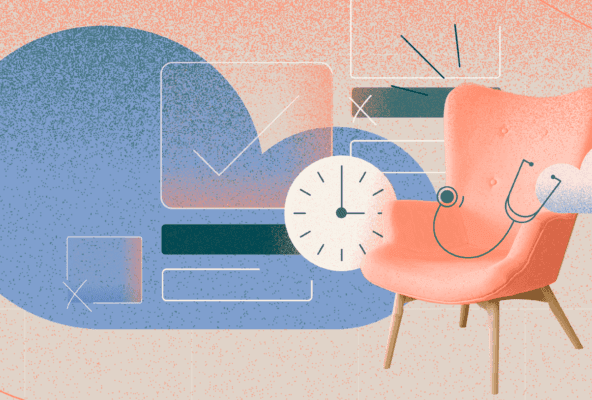Overview
- The cyberattack on Change Healthcare has significant implications due to the company’s large footprint in the healthcare industry, handling 1 in every 3 patient records and processing 15 billion health transactions annually
- Medical billing companies face several challenges in the wake of the cyberattack, including insurance eligibility verification issues, unprocessed claims, potential for untimely filing issues, and missing or incomplete electronic remittance advice (ERA) files
- To help their clients cope with these disruptions, medical billing companies can understand payers’ exception policies, utilize CMS-specific flexibilities, help providers check for financial assistance eligibility, and maintain transparency with clients about potential payment delays and risk mitigation efforts
Change Healthcare, owned by UnitedHealth Group, touches 1 in every 3 patient records and processes 15 billion health transactions annually, making this cyberattack one of the most far-reaching threats to the healthcare industry. Medical billers and internal billing departments must now develop creative workarounds to handle affected transactions.
In this article, we’ll cover common interruptions affected billers are facing and how they can best communicate with clients.
What are the latest developments with the outage?
No information has been released regarding the type of data stolen. On March 7, 2024, UnitedHealth Group announced that electronic prescribing is fully functional again with pharmacy claim submission and payment transmission also available.
They also shared that their electronic payment functionality will be available for connection beginning March 15, 2024 and that their claims network and software will be available March 18, with services being restored throughout that week.
For more on latest developments, check out our guide "Daily updates: What to know about the Change Healthcare cyberattack."
4 challenges facing medical billers
Medical billers affected by the Change Healthcare outage may be facing some or all of the following challenges.
1. Insurance eligibility verification
Checking insurance eligibility enables providers to determine if they can see a new patient or submit prior authorizations. Disruptions in eligibility verification have made it impossible to accurately determine copays. As a result, affected clinics and pharmacies have asked patients to pay full-price. Confused patients end up calling their providers, thus adding an additional workload for the front desk and billing staff.
2. Unprocessed claims
Another significant challenge to maintaining cash flow during the attack is the quantity of unprocessed claims. As billers are no longer able to send claims through Change’s platform, unprocessed claims have piled up, thus delaying payment and provider reimbursements.
3. Potential untimely filing issues
Medical practices must also consider timely filing requirements. Due to the cyberattack, claims may be filed or processed after an insurance company’s designated time limit. Insurance companies can automatically deny untimely filed claims.
4. Missing information from ERA
It’s also possible that electronic remittance advice (ERA) files are incomplete or missing entirely. This can further delay claims processing and reimbursement and result in denials.
How can medical billing companies help their clients cope with revenue disruptions?
Until Change Healthcare's claims network and software are back, medical billing companies can mitigate payment delays and claim backlogs in various ways. Each billing company has their own unique circumstances, so choose what works best for your business.
Avoid paper-based claims
Returning to paper-based claim processing can expose your practice to additional errors, rejections, and payment delays. If you cannot process claims through another claim submission platform, you may be able to submit claims directly to the payer via direct data entry (DDE).
If you decide to submit a claim manually, check your payer's bandwidth to handle increased paper claims. Make sure to understand their preferred submission format before submitting paper claims so you can avoid processing and reimbursement delays.
Establish communication with payers to understand their exception policy
Before determining whether or not to submit your claim, use DDE, or hold claims until full service is restored, it’s important to review your payer’s exception policy. Payers may have set exceptions due to the current outage and may provide relaxed timely filing requirements.
If you can wait until the week of March 18, 2024, consider holding claims to allow Change Healthcare time to come back online or until your payer opens additional transaction paths.
Use applicable CMS-specific flexibilities
According to the Department of Health and Human Services (HHS), providers will have more flexibility if they are accepting Medicare and Medicaid:
- Medicare providers planning to change clearinghouses for claims processing can contact their Medicare Administrative Contractor (MAC) for an equipped new electronic data interchange (EDI) enrollment.
- CMS will guide Medicare Advantage (MA) organizations and Part D sponsors to relax prior automatizations and timely filing requirements until the outage is resolved. It will also encourage Medicaid and CHIP plans to do the same.
- Medicare providers can contact their MAC for additional information on exceptions, waivers, or extensions for claims filing.
- MACs are prepared to accept paper claims if needed.
Avoid enrolling in a third-party clearing house
Some billers may feel tempted to sign up for a new third-party service to push claims through. However, this may cause more problems. Given the volume of claims Change Healthcare processed, most, if not all, third-party platforms have been affected. Jumping into a new platform could result in new errors, delays, and claim rejections through incorrect data routing.
Instead, it would be better to use DDE to file claims when necessary.
Check financial assistance eligibility
Optum Financial Services has offered a financial assistance program for providers who received payments from payers that were processed by Change Healthcare. To determine eligibility, providers must visit Optum to enroll.
Be transparent with clients
Practices outsourcing their billing processes will need guidance during this outage. Ensuring they know potential payment delays and what your firm is doing to mitigate risks can build trust during this difficult time.





